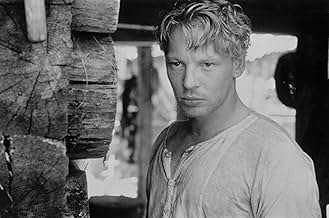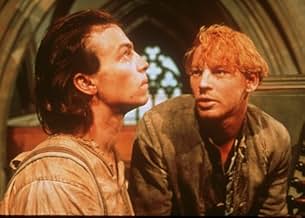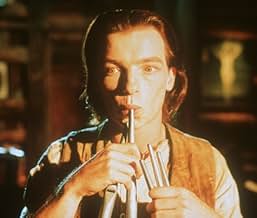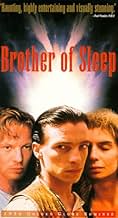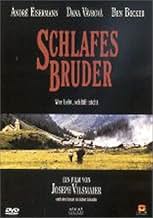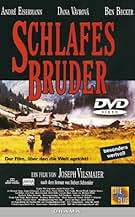Agrega una trama en tu idiomaIn the beginning of the 19th century, Johannes Elias Alder is born in a small village in the Austrian mountains. While growing up he is considered strange by the other villagers and discover... Leer todoIn the beginning of the 19th century, Johannes Elias Alder is born in a small village in the Austrian mountains. While growing up he is considered strange by the other villagers and discovers his love of music, especially rebuilding and playing the organ at the village church. Af... Leer todoIn the beginning of the 19th century, Johannes Elias Alder is born in a small village in the Austrian mountains. While growing up he is considered strange by the other villagers and discovers his love of music, especially rebuilding and playing the organ at the village church. After experiencing an "acoustic wonder", his eye color changes and he can hear even the most... Leer todo
- Premios
- 6 premios ganados y 3 nominaciones en total
Opiniones destacadas
The very old fashioned melodrama (freshened up by a "modern" element : "oh, that's it!, he's gay!", unbelievable) is not fluently told and the cast is just okay. Mountain scenery and good organ music at least make it bearable.
However, the film itself is still an excellent piece of work and stands on its own, aside from the book, as a remarkable movie. I'm not sure I noticed anything about "horrible sound effects", but I remember first seeing this film several years ago on Bravo late one night, and I could not get it out of my head for the next several YEARS ... until I discovered Amazon and was able to find an imported copy to purchase for my own. Only a year ago did I actually read the book, which was incredibly engrossing, and I encourage anyone who enjoyed the film to tackle the literary version as well.
The cinematography and the overwhelming metaphysical essence present in this film are what truly sucked me in. The story itself is simply beautiful in the same way that any tragedy, whether Greek or Shakespearean or whathaveyou, is captivatingly melancholy. It resonates within you and makes your heart ache for days afterward. Personally, I found the main character, Elias, to be the most fascinating element of the film. And of course, the scene in which he "opens the gates of heaven" with his sheer musical virtuosity is riveting to behold. This film is truly a delectable treat for the senses.
Anyone who is truly passionate about their talent or art will relate to the "tortured artist" persona that is Elias - the isolation, the dedication to your craft in spite of other desires which we cannot displace, and the embodiment of the emotional realm that so frequently serves as the origin of our inspiration ... this is what the story is truly about. If you can appreciate that, you will love this film.
The novel has none of these cheesy features. It is written in a straightforward manner, albeit with a strain of sentimentality common in popular German language fiction. As many have already commented, somebody apparently convinced the author that, when it comes to cinematic versions, more is better. Too bad. 4 of 10.
¿Sabías que…?
- TriviaThe only German film to ever be released on LaserDisc in the "squeezed" widescreen-edition.
- ConexionesFeatured in 53rd Annual Golden Globe Awards (1996)
- Bandas sonorasKomm O Tod, 'Du Schlafes Bruder'
From Choral No. 56 "Ich will den Kreuzstab gerne tragen"
by Johann Sebastian Bach
Recorded at
Arco Studios München
Cap à pie Studios Neutraubling
In the mountains of the Salzkammergut
Selecciones populares
- How long is Brother of Sleep?Con tecnología de Alexa
Detalles
- Fecha de lanzamiento
- País de origen
- Idioma
- También se conoce como
- Brother of Sleep
- Locaciones de filmación
- Productoras
- Ver más créditos de la compañía en IMDbPro
Taquilla
- Total en EE. UU. y Canadá
- USD 97,848
- Total a nivel mundial
- USD 97,848
- Tiempo de ejecución
- 2h 7min(127 min)
- Color
- Mezcla de sonido
- Relación de aspecto
- 2.35 : 1

